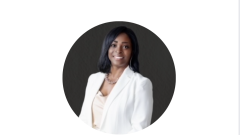Want unlimited access to top ideas and insights?
We've flipped the calendar page from 2023 — a year in which Financial Planning published nearly 100 original Voices columns alongside our daily (
The topics our esteemed columnists tackled ranged far and wide, from tech to taxes, marketing to machine learning, personalization to professional development, and so much more. It was challenging, but we selected just one column from every month of the year — take a tour of our 2023 Voices in the slideshow below. And be sure to also


















